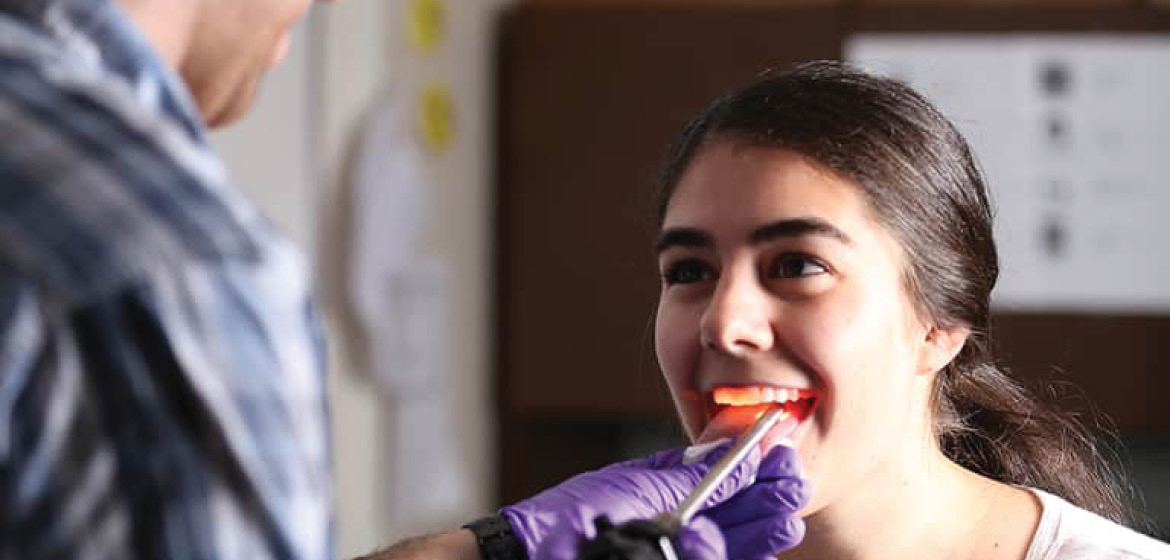Communication Arts and Sciences Communicative Sciences and Disorders Graduate Program

Students in the Communicative Sciences and Disorders program receive an experience unmatched by most other universities—the chance to practice within the community before they graduate.
While community engagement plays a large role in the development of undergraduate students (observation of clinicians is a requirement of the program), at the graduate level, engagement becomes even more crucial. Because MSU has no on-campus communicative sciences and disorders clinic, the program relies entirely on community placements for graduate students to gain clinical experience.
"We could not exist without practitioners joining us in this effort to train our clinicians," said graduate program director and professor Matthew Phillips. "All of our clinical training happens out in community-based placements with community partners."
Students are placed at schools, hospitals, and other medical facilities with practicing speech-language pathologists or audiologists. While many of these placements are with partners in the Lansing area, students are placed across Michigan and even out-of-state in some instances.
"Their clinical training in real-life practice is what they think sets them apart for their readiness for clinical practice and their 'hire-ability,'" Phillips said of the program's benefits for students.
The real-life experience gives students a chance to discover the environments that they enjoy working in and the populations that they enjoy working with, all while honing their skills and identifying their areas of strength. By going off campus to get their clinical hours, students are able to make connections within these clinics, forming a network and support system with other practitioners and Spartan alumni.
"It is probably the singularly identified strength of our program from every graduate. And again, it couldn't happen without over 200 affiliations making it work," said Phillips.


